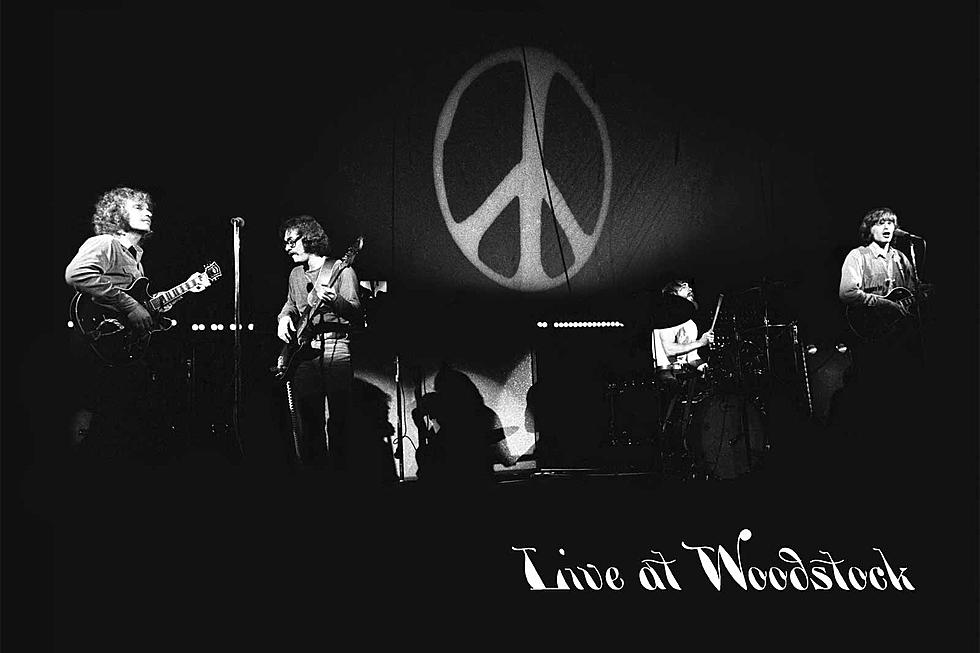Woodstock was a music festival that featured several artists, showcased their talents, and helped them become famous. But did you know that Creedence Clearwater Revival, a popular band at the time, did not want their documentary to include their set in the first-ever Woodstock festival?
John Fogerty, CCR’s frontman, didn’t want their set to be included in the Woodstock documentary. He felt that their great performance was not warmly received by the audience, mostly sleeping. They played their set after midnight.
Who was Creedence Clearwater Revival?
Creedence Clearwater Revival (CCR) was a famous American rock band in the 1960s and 1970s. The band was formed by brothers John and Tom Fogerty. They were both singer-guitarists. They started the band with their high school classmates Stu Cook who played bass, and Doug Clifford as the drummer.
The band was formed in 1959 in El Cerrito, California. They first achieved marginal success as the Blue Velvets, then later as the Golliwogs. By 1967, the band changed its name to CCR, and John Fogerty took the spot of lead singer, lead guitarist, and songwriter.
The band released their self-titled debut album in 1968, and their songs reached number 11 in American charts. The following year, they released their second album, Bayou Country. It was an instant success, with its single Proud Mary gaining international popularity.
The band established themselves as the generation’s most exciting live acts, where Fogerty also showcased his talent in writing songs that captivated the generation’s issues like the Vietnam war. By 1970, CCR dominated the American pop charts with songs like Green River, Down on the Corner, Up Around the Bend, and Travelin’ Band.
The band broke up a year after, starting with Tom Fogerty leaving. The Fogerty brothers continued their musical careers as solo artists while Cook and Clifford worked with different artists. Despite the band being short-lived, they were inducted into the Rock and Roll Hall of Fame in 1993. (Source: Britannica)
Woodstock 1969
The Woodstock Musical Festival started on August 15, 1969, and lasted for three days. It was held on a dairy farm in Bethel, New York. The festival was the brainchild of four young men who were heavily involved in the music scene and looking for investment opportunities.
The four men who were just under 27 years old created Woodstock Ventures, Inc. despite the idea of making money from the festival. The four ultimately decided to make the admission of the festival free. They didn’t expect so many people to show up for the festival.
As the festival fencing and ticket booths were not completed yet, they allowed free admission to the many people who wanted to participate in the festival. There were about half a million people who joined the festival.
The festival had 32 musicians, a combination of both local and international talent. The festival ended three days later, right after Jimi Hendrix’s set. It was one of the most popular and legendary music festivals. (Source: History)
What Happened to CCR During Woodstock?
When CCR joined Woodstock, it was already at the height of its fame and popularity. But John Fogerty felt that their performance was unremarkable during the festival. CCR was scheduled to play after the Grateful Dead, but their schedule was moved later as most of the other artists extended their sets.
CCR took the stage in the wee hours of August 17. Fogerty remembers they started their set around 2:30 in the morning. Though he felt that they delivered a great performance, unfortunately, he saw that they did not significantly impact the audience.
Fogerty later recounts that the lack of warm appreciation by the festival-goers was because most of them were already asleep after the Grateful Dead’s set and that the audience was partying the whole day despite the rain. (Source: Chicago Tribune)
